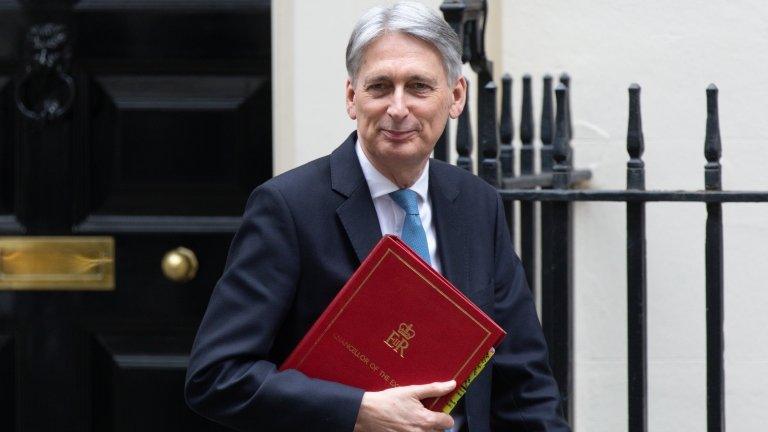Tory leadership contest: Is there a Brexit 'war chest'?
- Published
- comments

Tory leadership rivals Jeremy Hunt and Boris Johnson are continuing to unveil spending plans in the race to be the UK's next prime minister.
Some are big ambitions - tax cuts, tuition fee write-offs. Others are more pragmatic - money to help industries cope in a no-deal scenario, for example.
Both candidates have referred to using funds "set aside" by Chancellor Philip Hammond - but what are those?
Is there a Brexit "war chest"?
In his Spring statement this year, Chancellor Philip Hammond pledged £26.6bn to boost the economy if MPs voted to leave the European Union with a deal
The "headroom" in his fiscal forecasts basically means he has the scope to borrow an extra £26.6bn, while staying within self-imposed limits on government borrowing.
At the time of the announcement this money was widely referred to in the media as Mr Hammond's Brexit "war chest".
He said the release of that money for spending and tax cuts - combined with the end of Brexit-induced uncertainty - would result in a "deal dividend" for the economy.
Both Mr Hunt and Mr Johnson have ideas about what they'd like to do with the £26.6bn - see below - when it is one of them (and their choice of chancellor) in charge of the public purse.
However, in his Mansion House speech earlier this month, Mr Hammond warned that a no-deal Brexit would soak up this money so an incoming prime minister could no longer call on it.
He reiterated that message again on Monday.
Allow X content?
This article contains content provided by X. We ask for your permission before anything is loaded, as they may be using cookies and other technologies. You may want to read X’s cookie policy, external and privacy policy, external before accepting. To view this content choose ‘accept and continue’.

Mr Hammond himself doesn't appear to have actually used the phrase "war chest", and Paul Johnson, director of economic think tank the Institute for Fiscal Studies (IFS), has stressed that such a thing does not exist.
If the candidates "want to borrow more they should just say they want to borrow more - there isn't a war chest to spend," he told BBC Newsnight.
Allow X content?
This article contains content provided by X. We ask for your permission before anything is loaded, as they may be using cookies and other technologies. You may want to read X’s cookie policy, external and privacy policy, external before accepting. To view this content choose ‘accept and continue’.

What does Mr Hunt want to use this money for?
Both men have been accused of spending the same money more than once - or promising to make big investments or tax cuts even in the event of no deal, despite the fact that the £26.6bn would be needed for other things.
According to sources close to Mr Hunt, he wants to use some of the money to fund his pledge to increase defence spending by £15bn over five years.
That is obviously at odds with what Paul Johnson points out - that it is a one-off sum, not something necessarily available year after year for longer commitments.
Mr Hunt has also made a host of other promises - more money for social care and mental health support in schools, investment to end illiteracy, an offer to write-off the tuition fees of graduate entrepreneurs, a cut in corporation tax - all of which will have to be paid for.
The IFS says Mr Hunt's pledges so far would cost between £37-65bn, more than absorbing that fiscal headroom.
On the BBC's Andrew Marr Show, he conceded some of his spending priorities would "have to wait" if the UK left without a deal because he would need to "divert money" into what he's calling his "no deal war chest" to support hard-hit businesses.
So, slightly confusingly, we now have talk of two "war chests"...
One - Mr Hunt's - to help cope with the worst case scenario, and another - Mr Hammond's - that could be tapped into in the best case.
What about Mr Johnson?
Mr Johnson wants to raise the higher income tax rate from £50,000 to £80,000, which his team estimates would cost about £9.6bn.
The leadership candidate said some of the cost would be absorbed by an increase in national insurance contributions, but it would also be partly funded from the £26.6bn set aside by Mr Hammond.
He has also pledged to fund increased investment in special needs education, as part of a £4.6bn boost to overall school funding.
Pressed on whether that money really could be found, especially in the event of no deal, Mr Johnson has insisted there is "headroom available" - and "sensible tax cuts" would also boost growth and increase revenue further.
Is anyone else trying to spend the money?
There's one other factor to bear in mind. The amount that's available for a new prime minister to borrow might be determined by outgoing holder of the office.
The Financial Times reported last month, external on a row between Mr Hammond and Theresa May over her proposal to boost spending on a series of legacy projects before she departs.
The chancellor is "determined" not to spend his Brexit "war chest" unless a deal is agreed with the EU, the newspaper reported, while the Sun said, external Mrs May wants to use the money to spend £27bn over the next three years on schools.
She has already committed the country to reaching "zero-net" carbon emissions by 2050 - something Mr Hammond has warned will cost "about £1 trillion" and have "implications" for other spending ambitions.
- Published12 February 2019
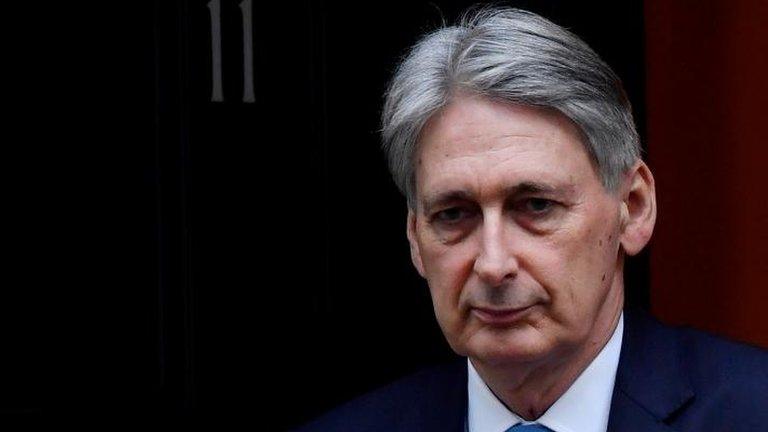
- Published13 December 2020
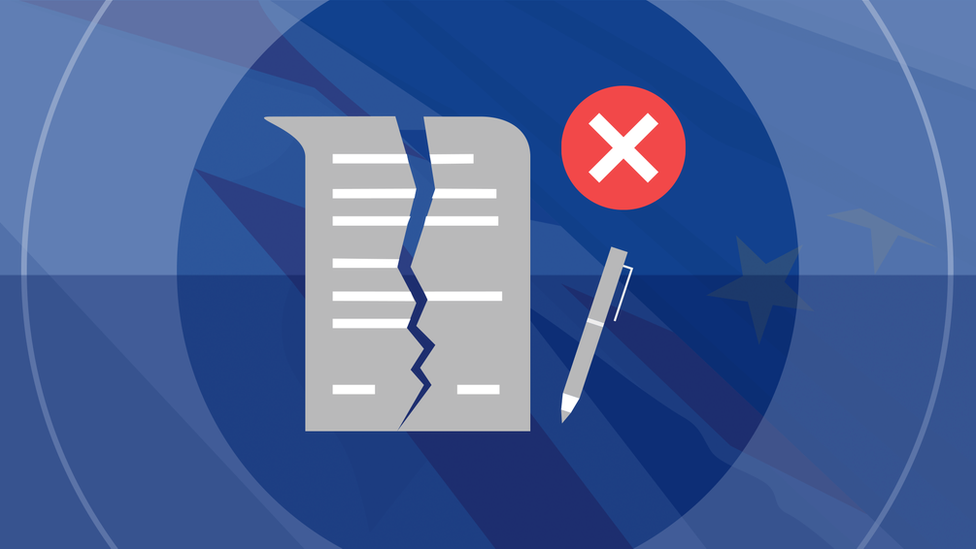
- Published20 September 2019
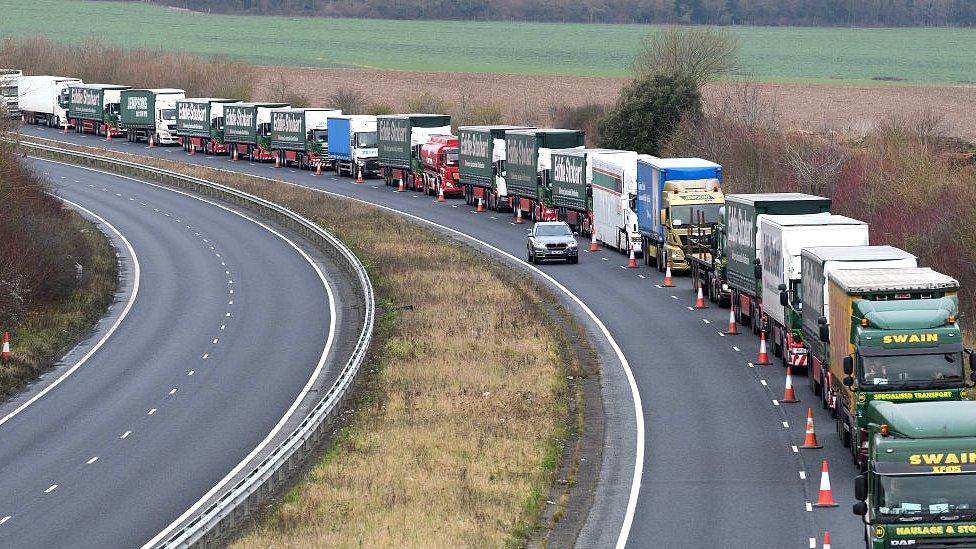
- Published30 June 2019
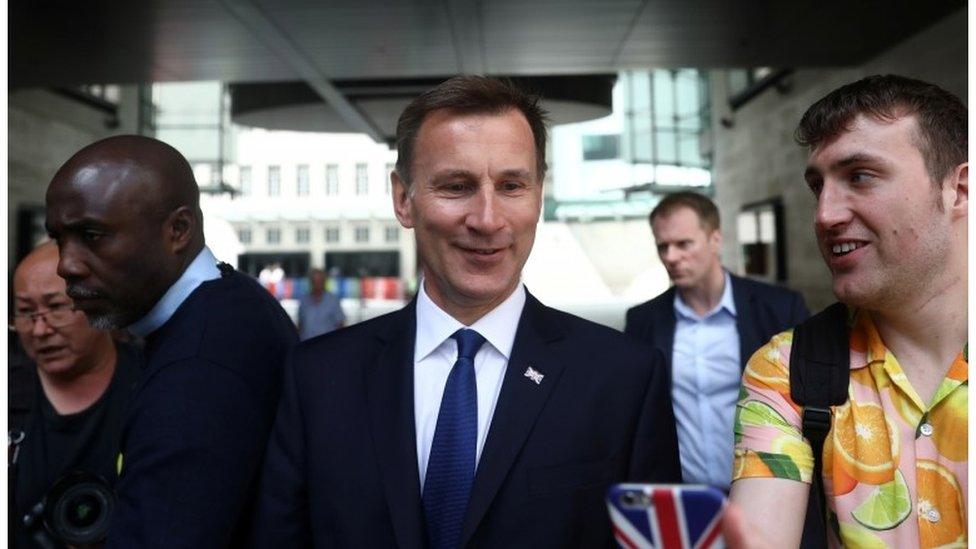
- Published19 June 2019
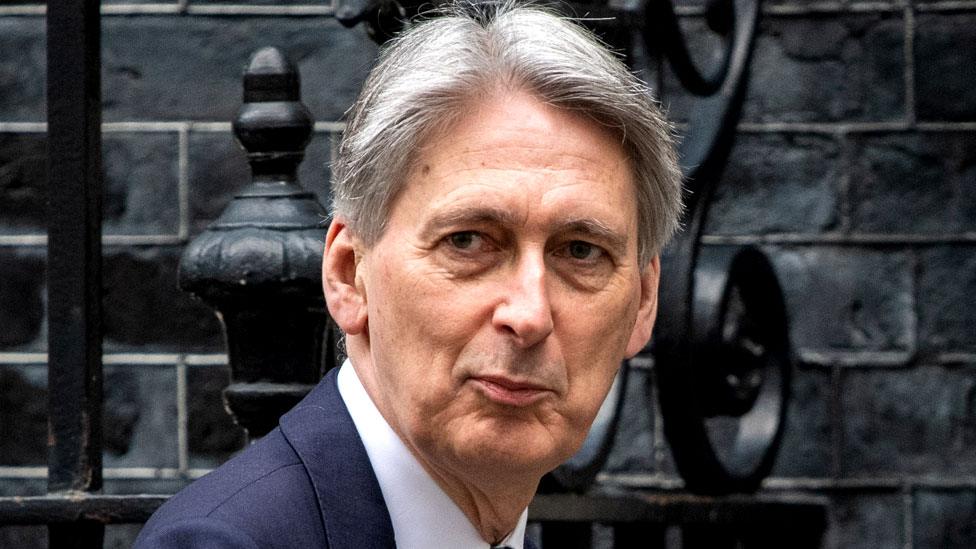
- Published4 July 2019
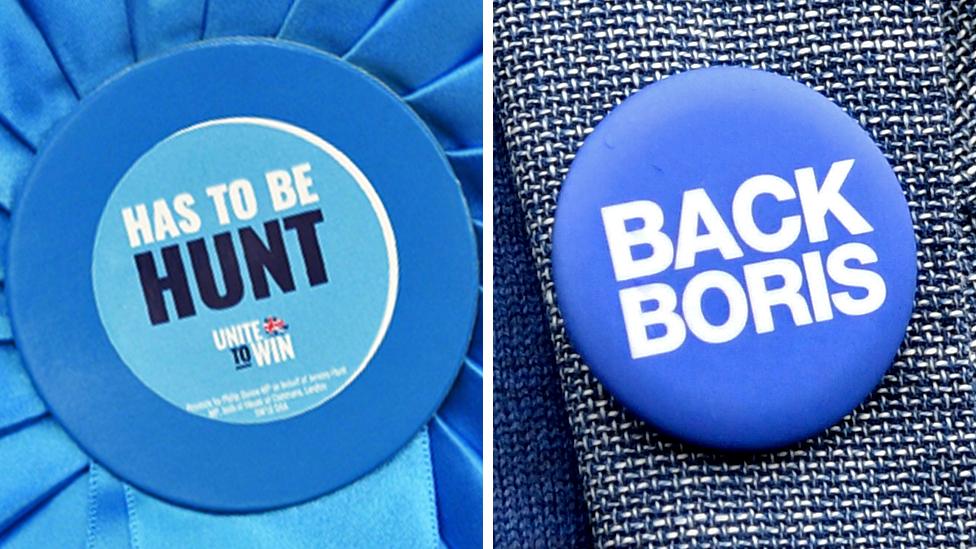
- Published13 March 2019
